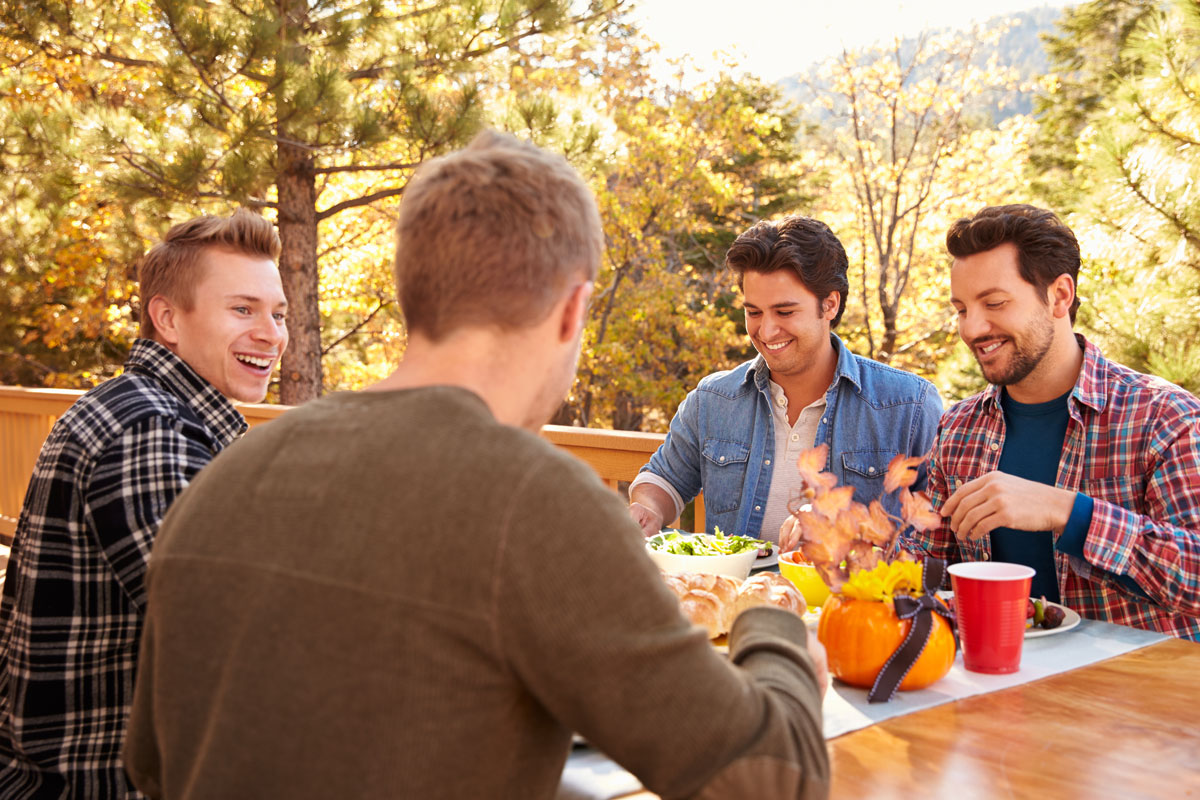The Repast
Blōtmōnaþ, or “Blood Month,” was the Anglo-Saxon term for the lunar month corresponding to November, marking a time when livestock were slaughtered in preparation for the winter months. It was an in-between period, the harvest feasts having ended and the privation of winter ahead.
During the cakes and ale ceremony, we share with the gods. At the red meal, we offer to the spirits of nature and the intelligences of the land. When we eat in silence during the dumb supper or mute dinner, we share with those who have departed. When we share our food and drink with our brothers, we also share our love sitting with them in brotherhood. When we come together in a safe space, offering our abundance freely without expectation of return underscores our mutual bonds of trust.
Neighbor taking care of neighbor was at the heart of the ancient social compact. The act of sharing our abundance with our brothers is an embodiment of our pact. Our promise is not just with the Dark Lord. When we place our signature in his book, we also pledge ourselves to all those who have signed before and after. The covenant is also one of brotherhood and mutual support. We give freely, knowing that our kindness will be returned to us in our time of need.
When the ancestors gathered around the communal fire to listen to each other’s stories, they shared in the bounty of the tribe.
Archeologists have discovered the bones of over 1,000 livestock animals at Durrington Walls, a massive Neolithic settlement and henge enclosure near Stonehenge. The overwhelming majority of the bones are from pigs, with the remaining from cattle. These findings suggest that large-scale feasting events took place in the area, with people and animals traveling from various parts of Britain to participate. The bones show signs of being roasted and cut with flint tools, indicating communal meals and celebrations.
When we come together, we are not just offering up our bounty to the gods; we are also sharing it with each other. Breaking bread and filling our brother’s cup is as vital today as it was to the ancient ancestors.
In the Hávamál, an ancient Norse text attributed to Odin, offering a guest a drink is crucial. One’s hospitality reflects the host’s honor. Slaking the newly arrived guest’s thirst establishes trust and camaraderie between the host and guest. It’s a gesture that signifies respect, imbues warmth, and strengthens community.
When we sit down to feast, whether with the gods, spirits, the dead, or our brothers, we enact a sacred ritual that dates back to ancient times. When the magister fills the cup with mead, ale, or wine, the gathered brothers partake first, and the magister drinks last.
Excerpt from a current work-in-progress.

